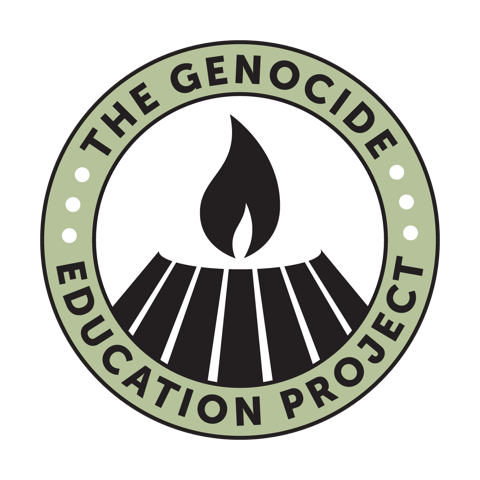April 1, 6 pm, Providence, Rhode Island
“A.I., Truth, and Genocide Denialism: Professional Development for a New Age”: Genocide denialism is a growing movement, and A.I. has the potential to make denial seem more authentic. Join Teacher Fellow Michael Xiarhos’ presentation on how education can separate fact from fiction.
April 2 & 4, 4:30-6:00 pm, Fresno, CA
“Resistance”: A 2-part afternoon workshop introducing GenEd’s new flexible unit, “Resistance, Agency, and Empowerment” (Open to FUSD Social Studies and English teachers, grades 7-12; Contact: Michelle Orelup, Michelle.Orelup@fresnounified.org)
April 3, 4:30-6:00 pm Fresno, CA
“Bird Letters”: An afternoon workshop introducing GenEd’s “Bird Letters” lesson-activity on Armenian identity and cultural preservation after genocide.(Open to FUSD teachers, 3rd grade and higher; Contact: Michelle Orelup, Michelle.Orelup@fresnounified.org)
April 9, 4-6 pm PT, ONLINE via Zoom
“Voices of Resilience:Understanding Genocide through Indigenous and Armenian Narratives”. Join GenEd and Redbud Resource Group for an afternoon of learning and exploring the resilience of Indigenous and Armenian peoples in the face of genocide.
April 10, 9 am-2:30 pm, Danvers, MA
“Genocide Then and Now: The Armenian Genocide and the Holocaust”: GenEd Teacher Fellows Justin Bilton and Jason Stark will present current research and best practices for teaching comparative genocide studies. Register by Monday, April 1st.
April 27, 8:30-4:30 pm, University of Wisconsin-Milwaukee
This full-day seminar, led by GenEd Teacher Fellow George Dalbo, will help teachers meet Wisconsin’s Act 30 genocide education requirements and will explore the interconnected histories of the Armenian Genocide, the Nagorno-Karabakh conflict, and the Armenian community of Wisconsin. More info here.
May 3, Macomb, MI: Michigan Council for the Social Studies Conference
“Forget Me Knot: Armenia”: This workshop will help educators understand how the events of the past in Armenia affect the Armenian people around the world today. The themes of self-determination, territorial integrity, and the role of the international community, young people in Armenia and America will be addressed.
May 7th, 8:30 am-3:30 pm. University of Michigan. Ann Arbor, MI
“Teaching about genocides around the world”: Sessions will include experts from UM’s International Institute, a panel on Teaching about Genocide, a review of curated teaching resources, planning, collaboration, and reflection with colleagues and experts. GenEd Teacher Fellow Amy Perkins will present the Armenian Genocide, and GenEd Teacher Fellow Jen Sepetys will present the Cambodian Genocide.
June 13-14, Cleveland, Ohio
GenEd Teacher Fellow Misty Ebinger will lead this two-day workshop on the Armenian Genocide at St. Gregory of Narek Armenian Church. More details here.
June 23-26, Los Angeles, CA
Applications are now open for participation in The California Teachers Collaborative for Holocaust and Genocide Studies’ Summer Institute, which will connect middle and high school teachers to experts in the field, as well as tools to combat hate and implement innovative curricula. GenEd will lead a session on its new, flexible 10-lesson unit on “Resistance, Agency, and Empowerment.”
June 24-28, Columbia, SC, South Carolina Council on the Holocaust
“Foundations of Teaching the Holocaust”: GenEd Teacher Fellow Kristi Ugland will lead the first session of the summer institute, drawing important interconnections and parallels between the Armenian Genocide and the Holocaust.
June 4-6, Kennesaw, GA Kennesaw State University
Summer Institute for Teaching the Holocaust: GenEd Education Director Kerri Flynn will be presenting research-based strategies for teaching the difficult history of the Armenian Genocide and its connections to the Holocaust, as well as presenting new GenEd teaching materials.
July 15, 8:30 am to 3:00 pm, Northampton, MA
“Humanizing the History of Genocide in the Classroom”. GenEd Teacher Fellow Kate Todhunter will lead this full-day workshop on genocide education, highlighting lesser-known genocides, including the Armenian Genocide by Ottoman Turkey during World War I, the Khmer Rouge genocide in Cambodia, and the 1994 genocide against the Tutsi in Rwanda, and will examine the legacy of colonization in the U.S.
